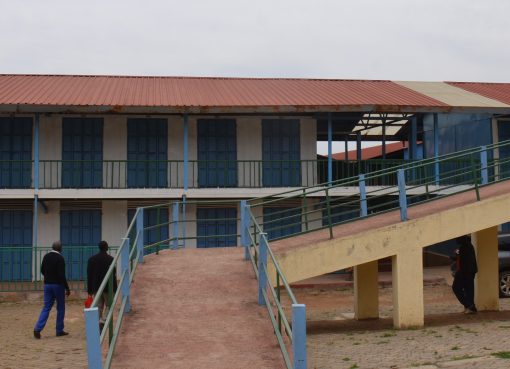Migori and Isebania towns are set to benefit from the last miles water connectivity project to be carried out at a cost of Sh.390 million.
The money has been sourced from the African Development Bank (ADB) and the Kenya government, according to the Lake Victoria South Water Works Development Agency.
Addressing members of the Migori County Development Implementation Coordination Committee in Migori town on Monday, Eng. Jeremiah Oteng’ said that the project whose design commenced in April this year aims to improve consumer connectivity through laying of secondary and tertiary distribution pipelines.
The improved connectivity within and around the urban centres will also assist in reducing non-revenue water and improving revenue base for sustainability of water supply systems to consumers.
According to Eng. Oteng’ the project to be done for the county government has been adopted and a scope of works approved, while the tender for the works will be advertised by end of November.
“The works are waiting for finalization of designs and tendering which are at an advanced stage and expected to end by end of November,” announced Oteng’ to the CDICC committee chaired by County Commissioner Joseph Rotich.
The multi-million project will see Sh.300 million spent at the Migori Water Supply and Sanitation while the Isebania Water supply and Sanitation will gobble up Sh.90 million towards laying secondary and tertiary distribution lines, installation of zonal and consumer meters as well as carrying out assorted repairs.
Works for the whole project are projected to be completed by May 2021, added Oteng’.
For years now, the two towns have been facing perennial water shortages despite the completion of two huge multi-billion water intakes at Oyani and Hibwa rivers to serve Migori and Isebania towns respectively.
Water experts believe that the two giant plants, built at a cost of over Sh.3 billion three years ago, are able to supply enough water throughout the year to the whole region and parts of Tanzania.
According to one employee at the local ministry of water, the only thing ailing the region in regard to water harvesting and distribution to consumers is the misplaced priorities of the top managers at the devolved unit.
“It is a cheap argument that the county government and Migori Water Supply Company (MIWASCO) are unable to pump and distribute water to consumers because of an electricity bill of Sh.3million per month yet there is always a waste of millions of public money that is going into pockets of individual workers through corruption,” says Joseph Nyakundi, a resident of Migori town who reported going without water in his house for two months now this year.
A visit recently by the CDICC team led by County Commissioner (CC), Joseph Rotich and the President’s Delivery Unit Director, Melchizedeck Onguso, found out that the plants have capacities to harvest and store enough water for the use by consumers without a hitch throughout the year.
The team also learnt that Migori and Isebania towns and their suburbs have superb systems of main water lines already laid and waiting for connection to consumers.
Currently, however, the Migori water supply system with a capability of serving 200,000 people has only 10,000 connections that poorly serve only 50,000 consumers within Migori town and its suburbs. Likewise, Isebania Water Supply Plant is unable to connect water to the targeted 60,000 consumers within Isebania town and Sirare town in Tanzania.
MIWASCO which is faced with serious cash flow hitches due to low revenue collection also blames high water tariffs imposed by the government on water companies that has left only a few people in the area applying for connections.
“We therefore appeal to the national government to work urgently towards reviewing the tariffs to make the cost favorable to both the water companies and the consumers so that more clients can be connected to our water systems,” said MIWASCO’s acting Manager, Ms. Juliet Odhiambo.
The national government has in the past years strived to implement its policy of ensuring that water is accessed by all and especially by the vulnerable population without access to clean and safe water as well as good sanitation.
Water and sanitation have been recognized as being at the core of sustainable development, a human rights commodity and critical resources for survival of people and the planet.
“Thus anybody working towards compromising access of water by the people through omission or commission should not be tolerated but forced to take responsibility and punished severely for his or her negative actions,” emphasized Rotich.
By George Agimba


